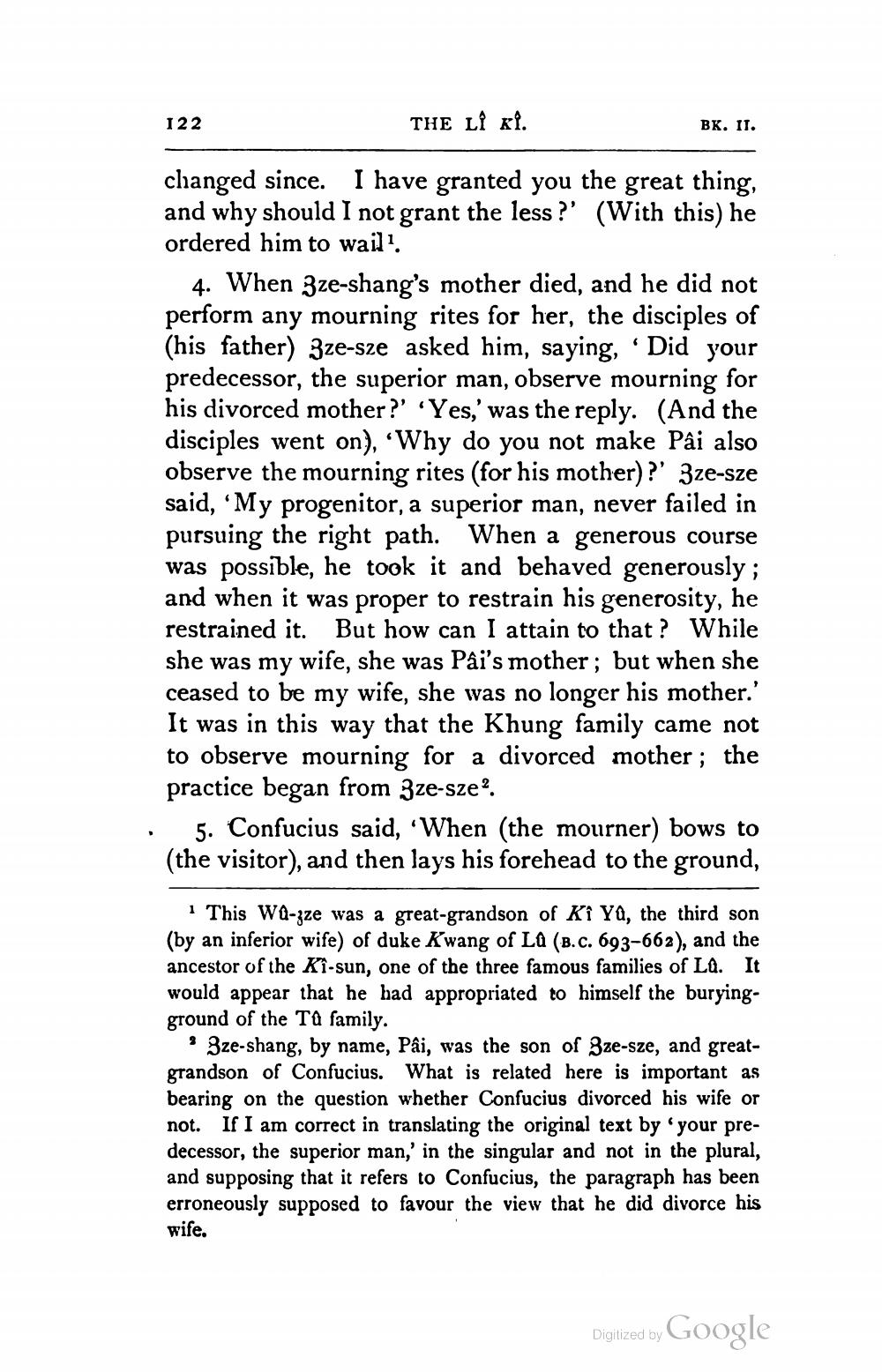________________
I 22
THE LÎ kl.
BK. II.
changed since. I have granted you the great thing, and why should I not grant the less ?' (With this) he ordered him to wail 1.
4. When zze-shang's mother died, and he did not perform any mourning rites for her, the disciples of (his father) 3ze-sze asked him, saying, “ Did your predecessor, the superior man, observe mourning for his divorced mother?' 'Yes,' was the reply. (And the disciples went on), Why do you not make Pâi also observe the mourning rites (for his mother)?' Zze-sze said, "My progenitor, a superior man, never failed in pursuing the right path. When a generous course was possible, he took it and behaved generously; and when it was proper to restrain his generosity, he restrained it. But how can I attain to that? While she was my wife, she was Pâi's mother; but when she ceased to be my wife, she was no longer his mother.' It was in this way that the Khung family came not to observe mourning for a divorced mother; the practice began from Zze-sze?.
5. Confucius said, 'When the mourner) bows to (the visitor), and then lays his forehead to the ground,
This Wa-zze was a great-grandson of Kî Ya, the third son (by an inferior wife) of duke K'wang of LQ (B.C. 693-662), and the ancestor of the Ki-sun, one of the three famous families of LQ. It would appear that he had appropriated to himself the buryingground of the Ta family.
* 3ze-shang, by name, Pâi, was the son of 3ze-sze, and greatgrandson of Confucius. What is related here is important as bearing on the question whether Confucius divorced his wife or not. If I am correct in translating the original text by your predecessor, the superior man,' in the singular and not in the plural, and supposing that it refers to Confucius, the paragraph has been erroneously supposed to favour the view that he did divorce his wife,
Digitized by Google




